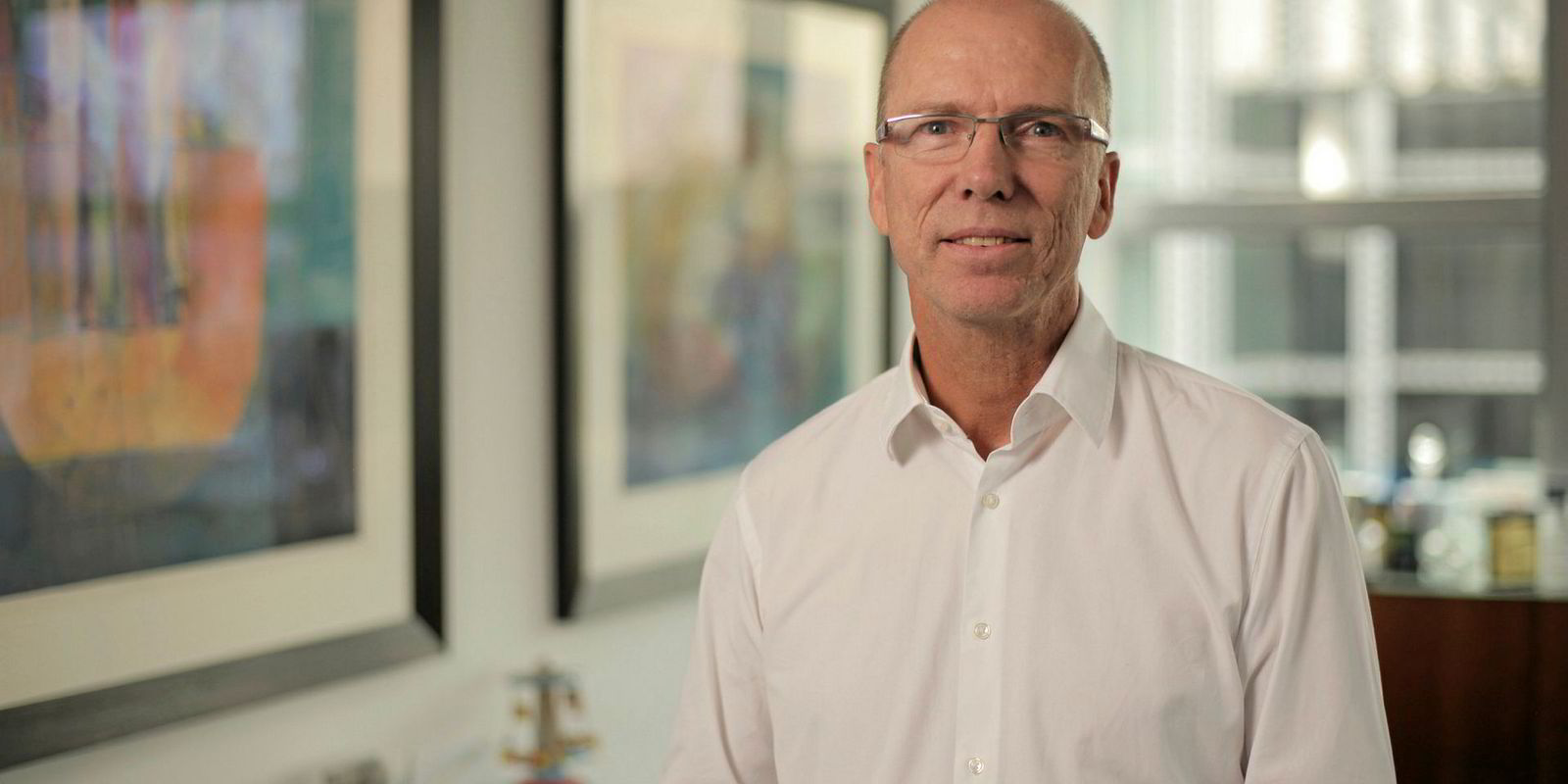Columbia Marlow Shipmanagement chief executive Mark O’Neil paints an interesting picture of the future of shipping as it advances into the digital age with e-commerce and autonomous ships.
O'Neil is so convinced of the importance of digitalisation in the changing landscape, he is taking the lead in the newly merged company's digital initiatives.
“What will be one of the big sea changes of the future is you will see huge players coming into the business — the logistics companies, the online purchasing companies, the Amazons, the Alibabas — who will look to put in place vertical structures,” he tells TradeWinds.
O’Neil sees shipping as only a small part of that structure, with the giant organisations wanting to own the terminals, haulage and warehousing on both sides of the voyage, in addition to the vessels.
“They will own the steel, they will want someone to operate that, and in 20 years' time that steel might be automated. Our challenge will be how we fit into that and how we will be relevant and compelling,” he says.
He remains confident shipmanagers will be able to justify their place at the table in the shifting landscape.
“We will always require that process to be managed. Whether that is ashore, with people operating and maintaining that remotely operated vessel, or whether there is a small number of people still required on board. That’s the challenge and that is not going to be that far off, in my view,” he said.
Captain Rajesh Unni, chief executive of Singapore and India-based Synergy Marine Group, cautions that unless shipmanagers continuously invest in new skills, they risk eventually being squeezed out of the business.
“Going forward, the challenge will be how we can add more value to the customer. That value has to come through efficiency — improvements in processes — and it is the new digital technologies that are going to help us realise that,” he says.
Unni says the future technologies need to be meaningful for the industry and bring positive changes. “If there is no value addition to it, what is the point?”

Future technological changes will require shipmanagers to recruit people with entirely new skill sets, especially those working onboard.
“Technology will change the way ships are operated. The landscape is changing but people who are going onboard still have the same skill sets I had when I was sailing," he says.
"Most training is still only content-based. But we need 21st-century skills such as collaboration, communication and problem-solving skills. The shipping workforce of the future will be a lot different than today. This will drive up the levels of professionalism, but it does require a much higher level of investment in the workforce."
The push in certain tech sectors to develop autonomous ships is being carefully watched by the shipmanagement community, although the jury appears out on when or whether it will become a reality.
O’Neil appears to be on the more optimistic side, expecting autonomous ships to emerge in the coastal and liner trades.
“You can’t have an automated vessel coming into an unsophisticated port, so it will be pretty limited to begin with,” he says. “I think you will see that it will be pretty widespread in five to 10 years, possibly. For transoceanic voyages, you are looking at a longer time frame.”
Unni has a more conservative view, suggesting the developments should be taken one step at a time.
"It is extremely important to use technology, but in a manner that assists in decision-making," he said. "It may be that a single person will be able to do a lot more than they can do today, but there must always be a human involved in the decision-making."



